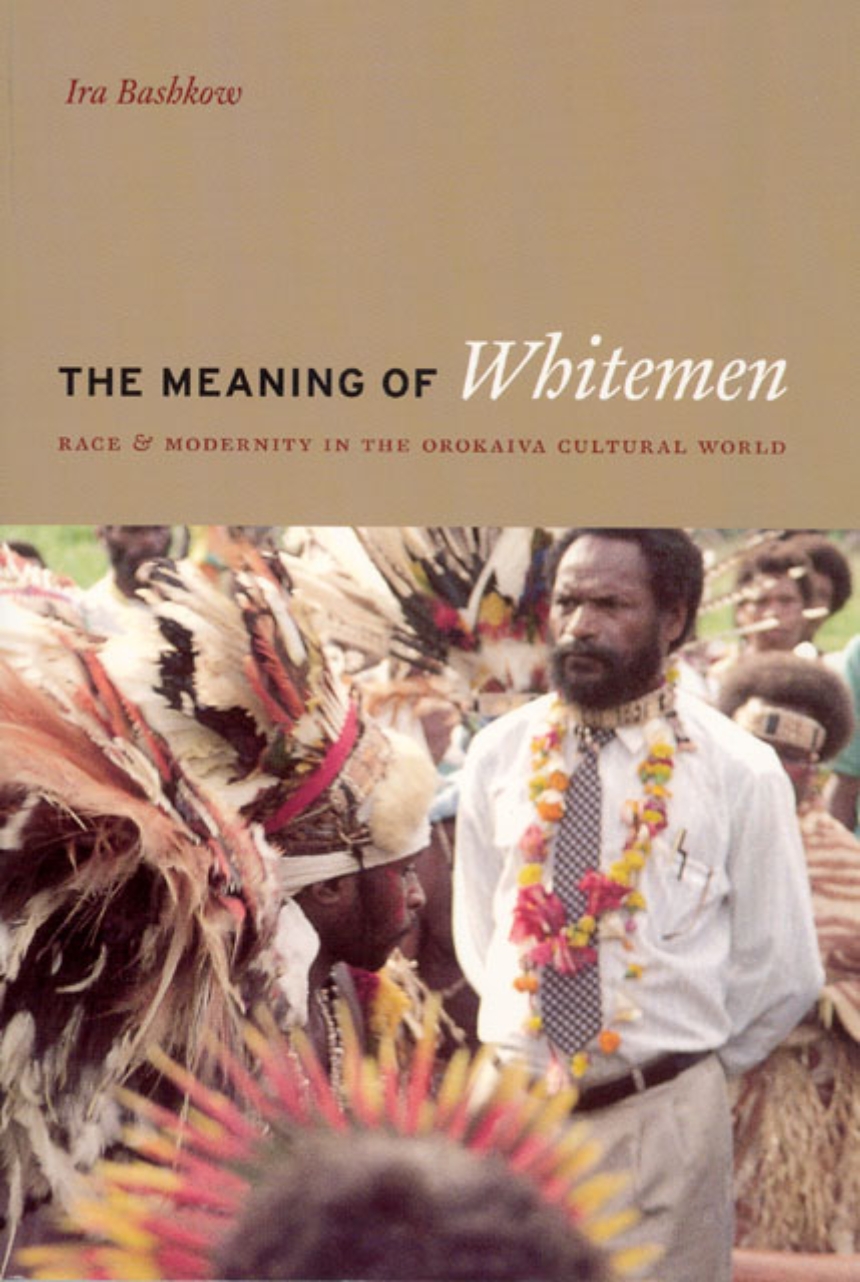The Meaning of Whitemen
Race and Modernity in the Orokaiva Cultural World
9780226038919
9780226038902
9780226530062
The Meaning of Whitemen
Race and Modernity in the Orokaiva Cultural World
A familiar cultural presence for people the world over, “the whiteman” has come to personify the legacy of colonialism, the face of Western modernity, and the force of globalization. Focusing on the cultural meanings of whitemen in the Orokaiva society of Papua New Guinea, this book provides a fresh approach to understanding how race is symbolically constructed and why racial stereotypes endure in the face of counterevidence.
While Papua New Guinea’s resident white population has been severely reduced due to postcolonial white flight, the whiteman remains a significant racial and cultural other here—not only as an archetype of power and wealth in the modern arena, but also as a foil for people’s evaluations of themselves within vernacular frames of meaning. As Ira Bashkow explains, ideas of self versus other need not always be anti-humanistic or deprecatory, but can be a creative and potentially constructive part of all cultures.
A brilliant analysis of whiteness and race in a non-Western society, The Meaning of Whitemen turns traditional ethnography to the purpose of understanding how others see us.
While Papua New Guinea’s resident white population has been severely reduced due to postcolonial white flight, the whiteman remains a significant racial and cultural other here—not only as an archetype of power and wealth in the modern arena, but also as a foil for people’s evaluations of themselves within vernacular frames of meaning. As Ira Bashkow explains, ideas of self versus other need not always be anti-humanistic or deprecatory, but can be a creative and potentially constructive part of all cultures.
A brilliant analysis of whiteness and race in a non-Western society, The Meaning of Whitemen turns traditional ethnography to the purpose of understanding how others see us.
328 pages | 4 halftones, 2 maps, 6 figures, 1 table | 6 x 9 | © 2006
Anthropology: Cultural and Social Anthropology
Asian Studies: Southeast Asia and Australia
Culture Studies:
Sociology: Social History
